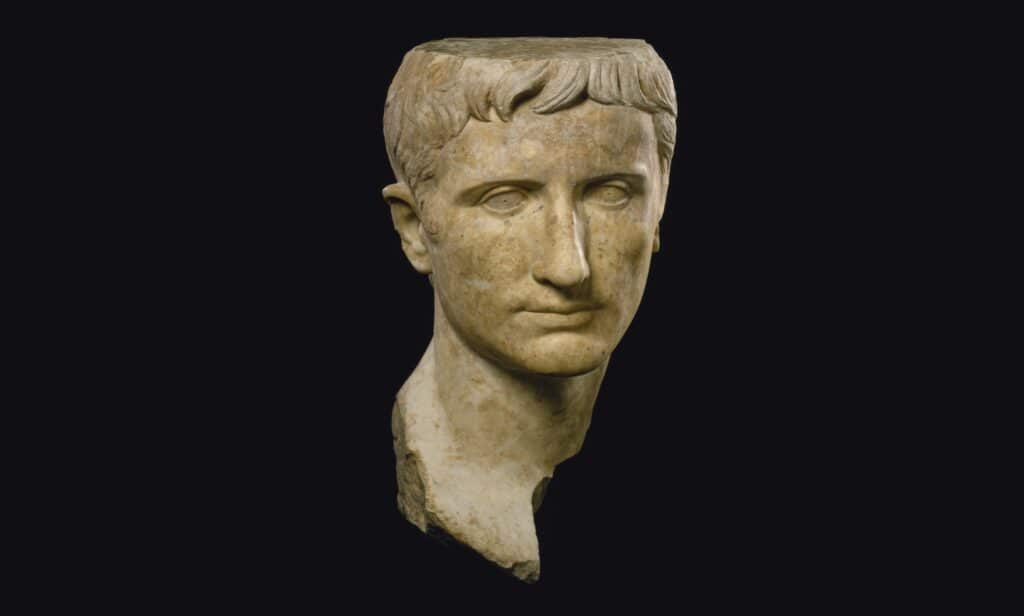

What comes to mind when you think about the kind of Roman Emperor who managed to establish an indestructible empire that lasted in human memory for centuries?
In other words, who would be the best Roman Emperor in history? The Roman Empire was one of the most influential civilizations, profoundly shaping the West today.
From its foundation in 27 BC under Augustus to the fall of the Western Roman Empire in 476 AD and the Eastern Roman (Byzantine) Empire in 1453, Rome left an indelible mark on human history.
Over its long existence, the empire was ruled by a significant number of emperors—approximately 70 in the West alone, with many more in the East—each contributing to its tumultuous history in different ways.
The empire was formally divided into two parts: the Western Roman Empire, centered in Rome, and the Eastern Roman Empire, later known as the Byzantine Empire, with its capital in Constantinople.
While the Western Roman Empire succumbed to barbarian invasions in the 5th century, the Eastern Empire lasted nearly a thousand years afterward, preserving Roman law, culture, and traditions and continuing to influence Europe and beyond.
So, the question of who’s the best Emperor is indeed tough, but only a few names are linked to the definition of greatness. To avoid confusion, we will focus on the Western Roman Empire, before transferring its capital to Constantinople.

Augustus’s reign reformed the state and created a model of power, culture, and innovation with consequences still felt in the modern world.
Born Gaius Octavius, Augustus inherited a messy situation and, through brilliant political skills and the skillful balancing act between republican custom and imperial control, unleashed the famous Pax Romana—an era of peace, security, and prosperity across the Roman world.
This lasted over two centuries and created the foundation upon which the mighty Rome we know today was established.
Gaius Julius Caesar Augustus, also known as Octavianus in Latin, was the architect of the Roman Empire. Born on September 23, 63 BC, he became the first Roman emperor, ruling from 27 BC until his death on August 19, AD 14.
His reign marked the beginning of the imperial cult and established the Principate, a system of governance that endured until the 3rd century AD.
Augustus’s reign ushered in Rome’s transformation from a ruined republic to a cohesive, thriving empire.
Through the institution of the principate—a system in which he preserved the facade of old republican control while holding ultimate authority—Augustus revamped the Roman government, giving institutions a vital lift they desperately needed.
His reforms touched every aspect of Roman life, from reorganizing the Roman military to revitalizing the cityscape of Rome itself, with new roads, aqueducts, and public buildings.
Cultural achievements under his patronage flourished, with poets like Virgil, Horace, and Ovid producing literary masterpieces that celebrated Roman ideals and the unity of Roman society.
Augustus died on August 19, AD 14, at 75. He died in Nola, a town in Campania (modern-day Italy), where he had traveled in his final years, possibly due to declining health. The exact cause of his death is not definitively known, but historical accounts suggest he succumbed to natural causes, likely illness or old age.

Choosing a single historical figure as ”the best” is not easy. There are many contenders and one of them is Roman Emperor Marcus Aurelius.
Marcus Aurelius Antoninus ruled from 161 to 180 AD and was a devoted Stoic philosopher. He was part of the Nerva–Antonine dynasty and is remembered as the last of the so-called ”Five Good Emperors.”
His reign marked the conclusion of the ”Pax Romana.”
Before becoming emperor, Marcus Aurelius held the position of Roman consul three times. Unlike Augustus’ realist approach and pragmatic leadership, Marcus Aurelius was more of a wise and enlightened ruler. As both a Roman Emperor and a Stoic philosopher, he balanced the burdens of military command with deep introspection.
His Meditations provide a great opportunity for us to see the thoughts of a ruler who was just as devoted to intellectual growth as he was to defending his empire.
Marcus Aurelius spent much of his reign on the empire’s frontiers, confronting barbarian invasions and ensuring the security of Roman territories. Through his writings, he encourages modern leaders to embrace resilience, ethical leadership, and the wisdom of self-reflection in times of adversity.
